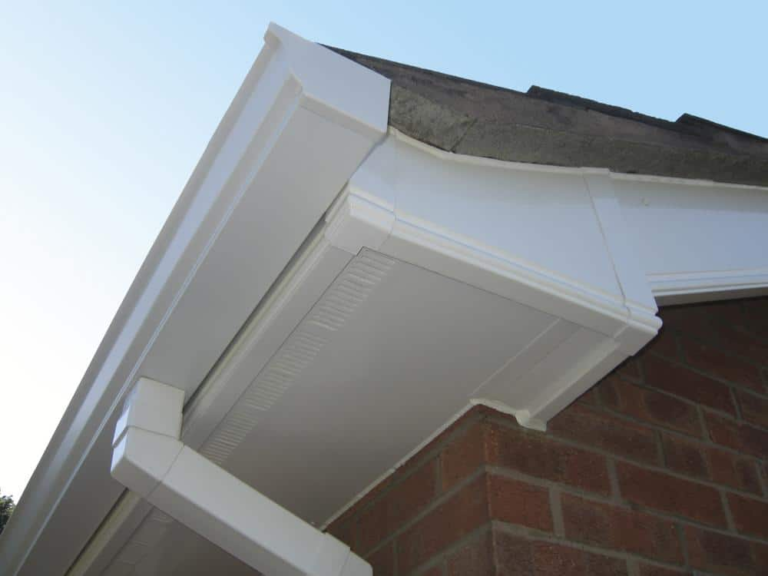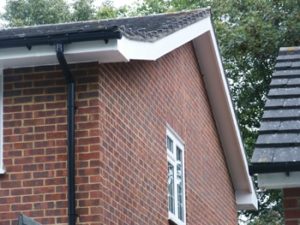The People Closest To Soffit And Fascia Replacement Tell You Some Big Secrets
Soffit and Fascia Replacement: A Comprehensive Guide
When it comes to keeping a home, lots of homeowners concentrate on areas such as the roof, siding, and windows, often neglecting the significance of soffit and fascia. These elements play a vital role in protecting the home from water damage, insects, and other ecological elements. This post looks into the significance of soffit and fascia, indications that show a requirement for replacement, and a step-by-step guide to changing them.
Understanding Soffit and Fascia
Soffit describes the underside of a roof overhang. It can be found underneath the eaves of your roofing and is mostly responsible for ventilation and enabling air to flow in the attic. Soffit likewise provides a completed want to the eaves of a home.
Fascia, on the other hand, is the vertical board that runs along the edge of the roofing system. It functions as a protective barrier for the roofing system’s wooden components and supports the bottom row of roof tiles or shingles. Additionally, fascia boards accommodate gutter systems that help direct water far from the home’s structure.
Importance of Soffit and Fascia
- Ventilation: Proper ventilation aids in avoiding moisture accumulation in the attic, which can result in mold and rot.
- Security: These parts secure the roofing and underlying structures from water damage and bugs.
- Visual Appeal: They improve the overall look of a home, contributing to curb appeal.
- Gutter Support: Fascia boards hold up the gutters, ensuring effective water drain.
Indications That Soffit and Fascia Need Replacement
While soffit and fascia are developed to be resilient, they can break gradually. Property owners should be alert for a number of signs that indicate the need for replacement:
- Peeling Paint: If paint on your soffit or fascia is peeling or bubbling, it might show water damage.
- Water Damage: Stains or watermarks on the ceiling or walls simply below the roofline can symbolize leaks in the soffit or fascia.
- Rot or Decay: Soft areas or places where the wood feels spongy recommend rot, Repairmywindowsanddoors.Co.Uk typically triggered by prolonged exposure to wetness.
- Pests: Insects or rodents can get in through damages in these components, signaling that they may need replacement.
- Visible Damage: Cracked, warped, or missing out on pieces of soffit or fascia need to be dealt with right away.
Actions for Soffit and Fascia Replacement
1. Gather Necessary Tools and Materials
Before starting the replacement process, collect the following tools and products:
- Ladder
- Safety goggles and gloves
- Determining tape
- Saw (circular or miter)
- Nail weapon or hammer
- Level
- Caulk and caulking gun
- Replacement soffit and fascia products (vinyl, aluminum, or wood)
2. Measure and Cut
Accurate measurements are essential for a proper fit:

- Measure the length and width of the fascia and soffit areas that need replacement.
- Cut the new fascia boards to length, guaranteeing a snug fit versus the existing structure.
3. Eliminate Old Materials
Thoroughly get rid of the old soffit and fascia:
- Use a pry bar or crowbar to carefully take out the old fascia boards, bewaring not to harm the roofing or surrounding areas.
- Get rid of soffit panels, guaranteeing you eliminate any nails or screws securing them in place.
4. Inspect for Damage
Before installing new components, inspect the area for any underlying damage. This might include:
- Rot in the rafters or roof sheathing
- Signs of mold or mildew
5. Set Up New Fascia and Soffit
- Begin by installing the fascia boards, protecting them with a nail gun or hammer.
- Use a level to guarantee the boards are aligned properly, making sure a straight edge.
- Set up soffit panels by fitting them into the designated areas and protecting them in place.
6. Caulk and Paint (if required)
- Use caulk to seal joints or spaces, avoiding wetness from going into the home.
- If the selected product requires painting (such as wood), apply a weather-resistant paint or finish to secure against the components.
7. Tidy up
When the brand-new soffit and fascia are set up, clean up the location. Dispose of old materials properly, and ensure any tools utilized are stored away safely.
Maintenance Tips
Keeping soffit and fascia can extend their life expectancy. Here are some ideas:
- Regularly inspect for signs of wear or damage.
- Keep seamless gutters tidy and totally free of particles to prevent water overflow, which could damage soffit and fascia.
- Cut back trees or shrubs that might come into contact with these areas, avoiding physical damage.
FAQs
What products can be used for soffit and fascia replacements?
Typical materials consist of wood, vinyl, aluminum, and fiber cement. Each material has its pros and cons in regards to expense, durability, and maintenance.
How typically should soffit and fascia be changed?
The life expectancy of soffit and fascia can vary based on material and ecological elements. Generally, they ought to be inspected every 5 to 10 years and changed as essential.
Can I replace soffit and fascia myself?
Yes, it is a DIY-friendly task, but it requires standard woodworking abilities and safety precautions. However, hiring a professional might be a good idea if the job involves complicated roof structures or if you’re unfamiliar with the process.

What are the costs associated with changing soffit and fascia?
Costs vary based upon the product chosen, labor rates, and the size of the area to be replaced. Typically, property owners can anticipate to invest anywhere from ₤ 1,000 to ₤ 3,000 for replacement.
Is it required to paint fascia boards?
If using wood fascia boards, it is essential to paint them with a weather-resistant finish to protect against moisture and UV damage. Vinyl and aluminum generally do not need painting.
Soffit and fascia are important elements of a home’s outside that protect against ecological aspects while improving its aesthetic appeal. By comprehending their value, recognizing signs of damage, and following the proper replacement procedure, property owners can ensure their home stays safe, functional, and visually appealing for several years to come. Routine maintenance and awareness can also prevent more considerable issues and costs in the future.

